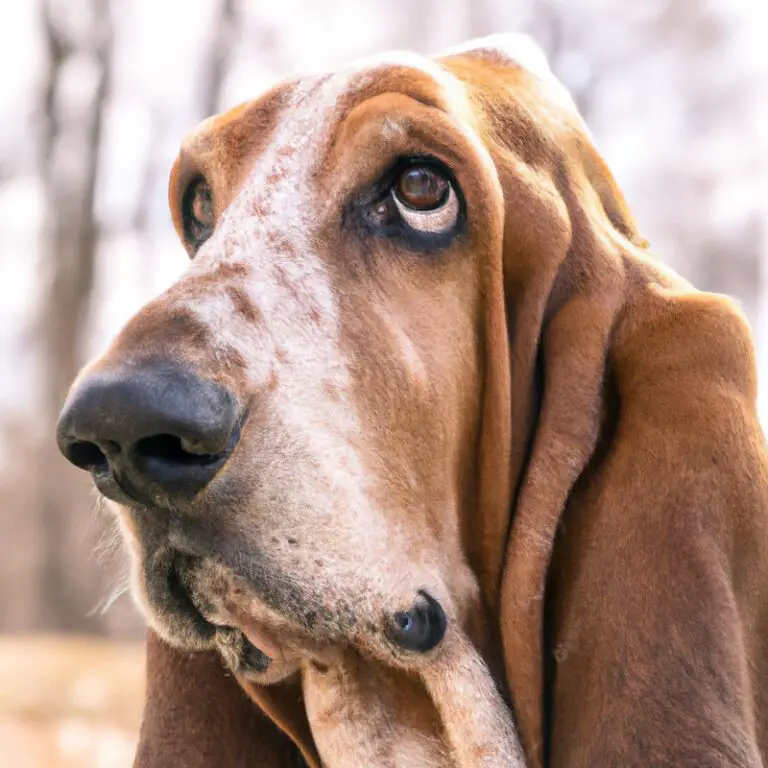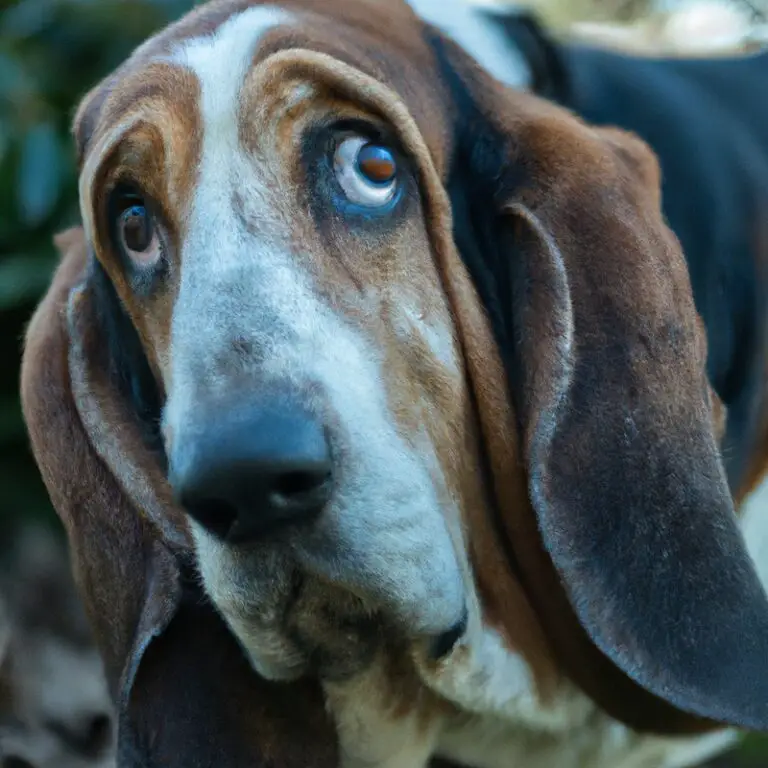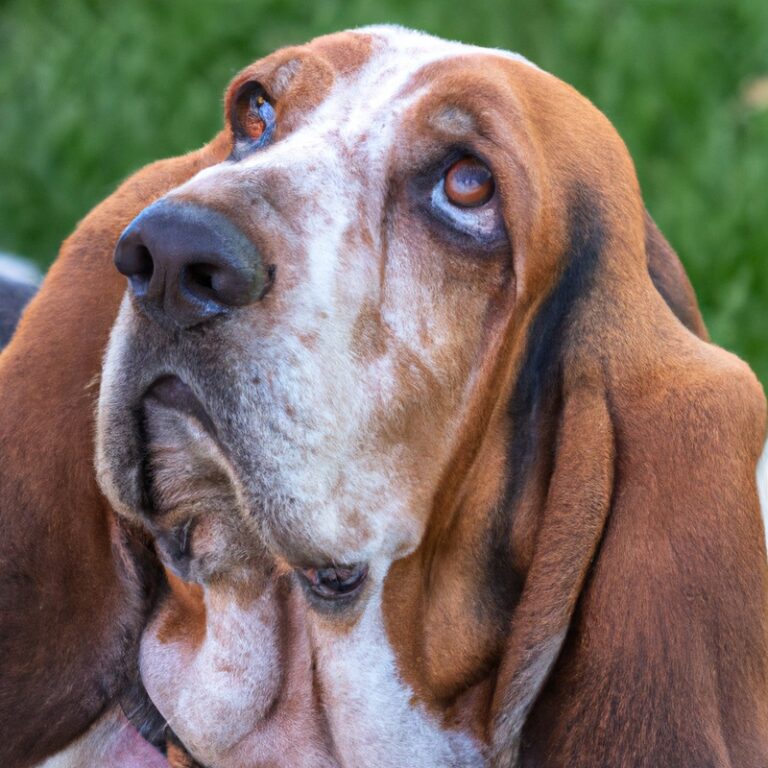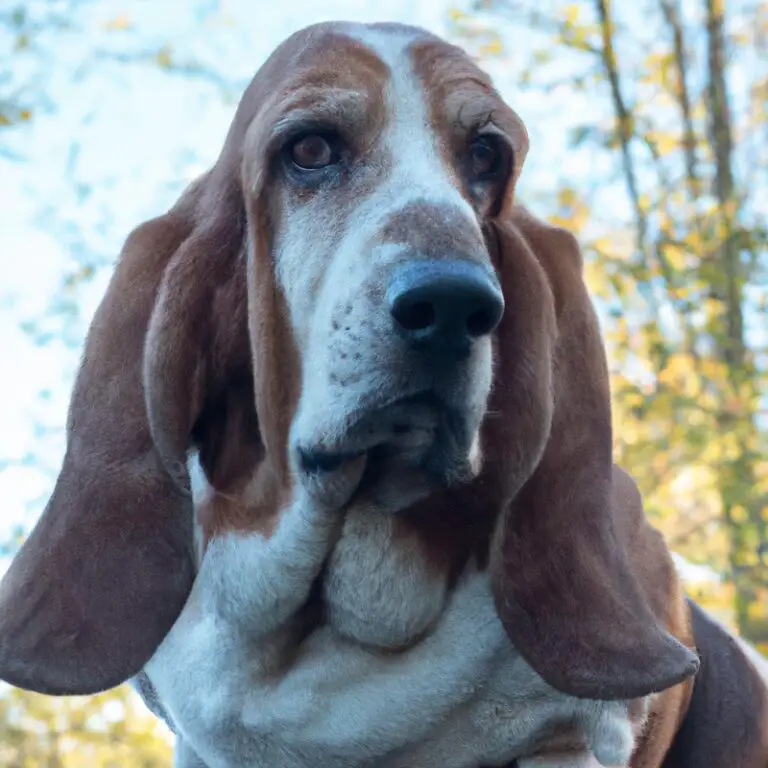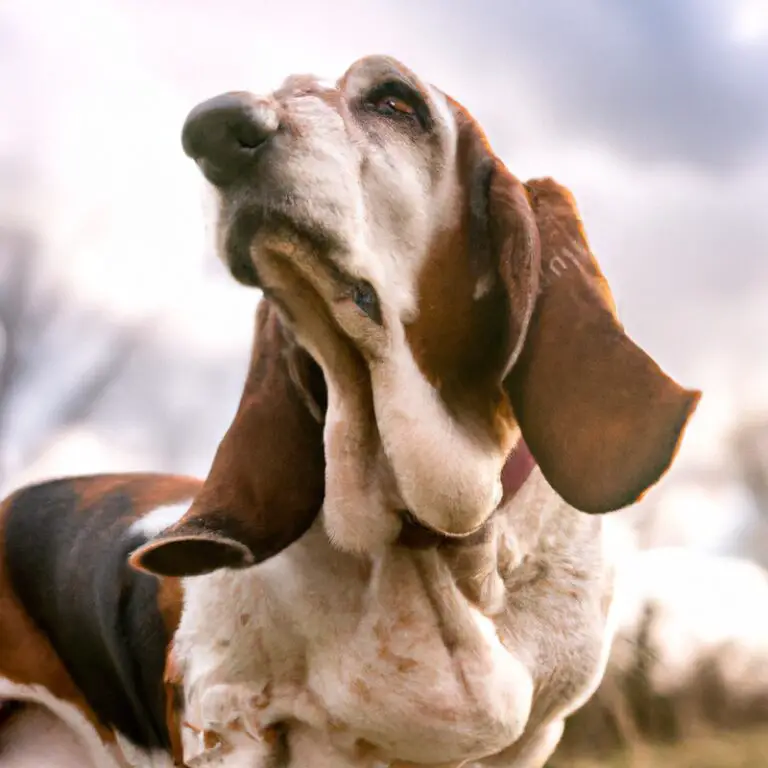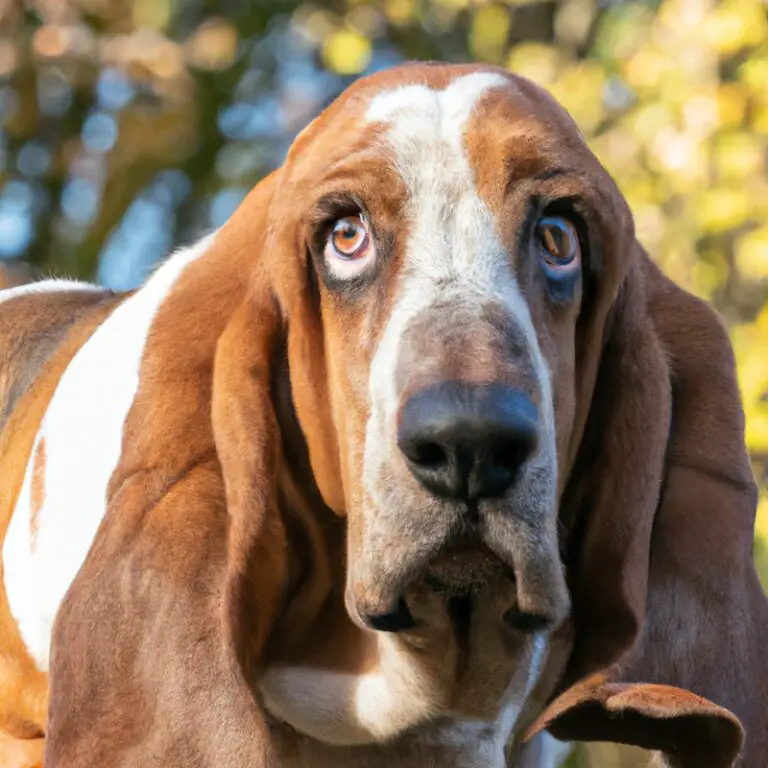Can Basset Hounds Be Trained To Be Therapy Dogs For Individuals With Intergalactic Anxieties?
Key Takeaways:
- Basset Hounds can be trained as therapy dogs for individuals with intergalactic anxieties.
- Their calm and friendly demeanor makes them well-suited for this role.
- Training methods should focus on socialization, desensitization, and positive reinforcement.
- Basset Hounds can provide comfort and support to those experiencing anxiety related to intergalactic experiences.
Are you ready to embark on an otherworldly journey? Picture this: you’re soaring through the vast expanse of space, but the weight of the universe is bearing down on your shoulders.
Intergalactic anxieties can be overwhelming, but what if I told you there might be a furry, four-legged solution to your celestial woes?
Enter the enchanting world of Basset Hounds. These charming, droopy-eared companions have long been known for their gentle nature and loyalty.
But can they go beyond being just a household pet and become therapy dogs for individuals with intergalactic anxieties?
Join me as we explore the characteristics, challenges, and potential of Basset Hounds as therapy dogs for those navigating the galaxies of anxiety.
| Topic | Can Basset Hounds be trained to be therapy dogs for individuals with intergalactic anxieties? |
| Pros | Cons |
| Basset Hounds have a calm and gentle temperament, which can help create a soothing environment for individuals with anxiety. | Basset Hounds may not be suitable for certain hypersensitive individuals who may be triggered by their strong scent or drooling. |
| Their long ears can be comforting for individuals to pet or hold onto. | Basset Hounds have a tendency to be stubborn and independent, which may make them more challenging to train for specific therapy tasks. |
| Basset Hounds are generally friendly and enjoy human companionship, which can provide comfort and companionship to individuals with anxiety. | Their droopy eyes and long ears can sometimes obstruct their vision, making them less alert or responsive in certain situations. |
What are Basset Hounds?
Characteristics of Basset Hounds
Basset Hounds have distinct characteristics that make them unique. Firstly, their long, droopy ears are adorable and serve a purpose by helping them to pick up scents more effectively.
Secondly, they have a keen sense of smell and are excellent trackers.
Thirdly, their short legs and sturdy build make them low to the ground, which gives them stability and endurance. Additionally, Basset Hounds are known for their laid-back and friendly nature.
They are generally good with children and other pets, making them a great addition to families.
History of Basset Hounds
Basset Hounds have a rich history that dates back to 6th century France.
They were originally bred for hunting small game, such as rabbits and hares.
Their distinctive features, like their long ears and droopy eyes, were purposely bred to help them track scents close to the ground.
Basset Hounds became popular in Europe, especially in England, in the 19th century.
Today, they are known for their friendly and laid-back temperament, making them great companions and family pets.
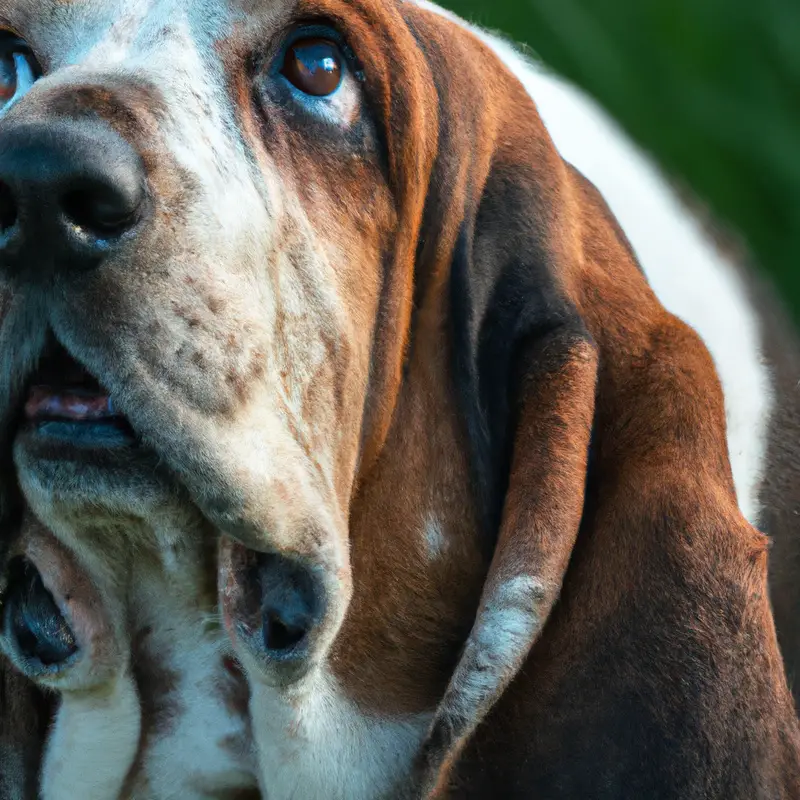
What is a therapy dog?
Definition and role of therapy dogs
Therapy dogs are specially trained canines that provide comfort, emotional support, and companionship to individuals in various settings. Their role is to help improve people’s mental and emotional well-being.
These dogs are typically calm, friendly, and well-behaved, and they undergo rigorous training to prepare them for their therapeutic work.
Therapy dogs can visit hospitals, nursing homes, schools, and other establishments to interact with individuals who may benefit from their presence. They offer unconditional love and affection, helping to reduce stress, anxiety, and feelings of loneliness.
Benefits of therapy dogs for individuals with anxiety
Therapy dogs can bring immense benefits to individuals with anxiety.
They provide comfort, companionship, and unconditional love.
Having a therapy dog can reduce feelings of loneliness and isolation, as they are always there for support.
Interacting with a therapy dog can also decrease stress levels and promote relaxation.
These dogs are trained to sense when someone is feeling anxious and can provide a calming presence.
Additionally, therapy dogs can help individuals develop better coping skills and improve their overall well-being.
Whether through petting, cuddling, or simply being present, therapy dogs offer a unique form of support for those with anxiety.
Can Basset Hounds be trained as therapy dogs?
Qualities of Basset Hounds for therapy work
Basset Hounds have several qualities that make them well-suited for therapy work:
- Gentle and Calm: Bassets have a calm and laid-back demeanor, which helps create a soothing and relaxing atmosphere for therapy sessions.
- Affectionate and Loyal: These dogs are known for their loyalty and strong bond with their owners. This makes them reliable and dependable partners for individuals seeking emotional support.
- Good Temperament: Bassets generally have a friendly and patient nature, allowing them to interact well with individuals of all ages and backgrounds.
- Keen Sense of Smell: Bassets have an exceptional sense of smell, which can be utilized in certain therapy activities such as scent detection or search and rescue exercises.
- Size and Appearance: Their long ears, droopy eyes, and unique physique can bring a smile to anyone’s face, helping to create a positive and engaging environment during therapy sessions.
Challenges in training Basset Hounds for therapy work
Training Basset Hounds for therapy work poses a few challenges.
Firstly, their independent nature can make them stubborn and resistant to commands.
Secondly, their strong sense of smell can distract them from their tasks.
Additionally, Basset Hounds have a tendency to howl and bark, which may not be suitable for certain therapy settings.
Moreover, their long ears and droopy eyes can hinder their visibility and interaction with individuals.
Despite these challenges, with patience, consistency, and specialized training, Basset Hounds can still excel as therapy dogs.
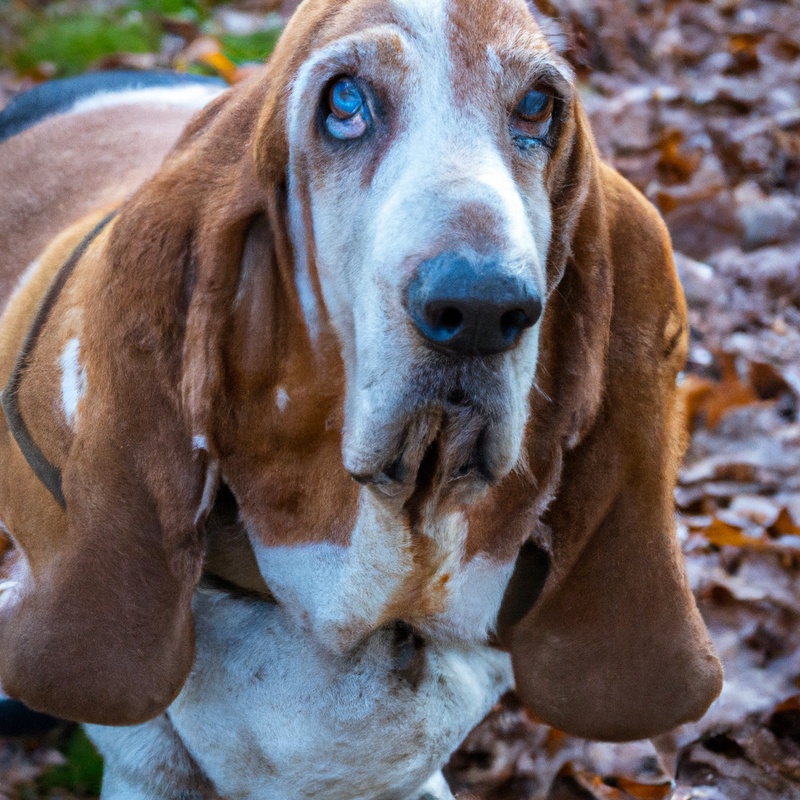
Training Basset Hounds as therapy dogs
Finding a qualified trainer for Basset Hounds
Finding a qualified trainer for your Basset Hound is essential when it comes to therapy work.
Look for trainers with experience in working with therapy dogs, as they will understand the specific needs and training required for this role.
Seek recommendations from local therapy dog organizations or veterinarians who can provide reliable referrals.
Meet with potential trainers to discuss their methods, ask about their credentials, and observe their interaction with dogs.
Trust your instincts and choose a trainer who aligns with your training goals and has a positive, compassionate approach.
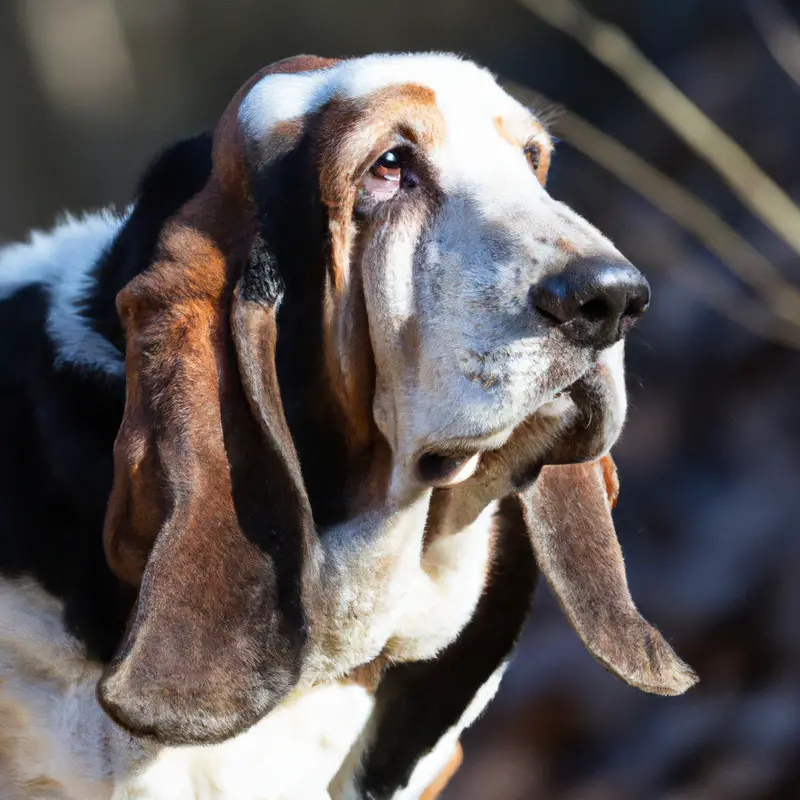
Basic obedience training for Basset Hounds
Basic obedience training is essential for Basset Hounds. Here are some key aspects to consider when training your Basset Hound:
- Start early: Begin training your Basset Hound as soon as possible, preferably when they are young puppies. This allows them to develop good habits and behavior from an early age.
- Positive reinforcement: Use rewards and treats to motivate and encourage your Basset Hound during training. Positive reinforcement helps them associate good behavior with rewards, making training sessions more effective.
- Keep it short and consistent: Basset Hounds have a tendency to get bored easily, so keep training sessions short and focused. Consistency is crucial in reinforcing training commands and ensuring progress.
- Use basic commands: Teach your Basset Hound basic commands such as sit, stay, come, and heel. These commands lay the foundation for more advanced training and help your dog become well-behaved.
- Socialization: Expose your Basset Hound to different environments, people, and animals to help them become well-adjusted and friendly. This includes introducing them to other dogs, taking them for walks, and allowing them to interact with new experiences.
Remember, every dog is unique, and training results may vary. Be patient, understanding, and tailor the training to suit your Basset Hound’s individual needs and personality.
Specific therapy training for Basset Hounds
Specific therapy training for Basset Hounds involves focusing on their unique qualities and tailoring their training to meet the needs of therapy work.
This training includes socialization to various environments, people, and animals, as well as obedience training to ensure they can follow commands reliably.
Basset Hounds are taught to be calm, patient, and gentle during interactions, and to remain focused on their handler.
They are also trained to perform specific tasks, such as providing comfort and support to individuals with anxiety or participating in structured therapy sessions.
Basset Hound suitability for individuals with intergalactic anxieties
Understanding intergalactic anxieties
Understanding intergalactic anxieties involves recognizing the unique fears and concerns that individuals may experience when it comes to the vastness and unknown aspects of outer space. It encompasses the anxiety and unease that can arise from contemplating the vastness of the universe, potential extraterrestrial encounters, or the mysteries of space exploration.
Interacting with a calming presence, such as a therapy dog like a Basset Hound, can help alleviate some of these anxieties and provide comfort and support during moments of stress or worry.
Basset Hounds as a calming presence for intergalactic anxieties
Basset Hounds can indeed be a calming presence for individuals with intergalactic anxieties. Their gentle and laid-back nature can help create a soothing environment, providing a sense of comfort and security.
The calm demeanor and affectionate nature of Basset Hounds may help reduce anxiety levels and promote relaxation.
Their deep, melodic howl can even have a soothing effect on anxious individuals, creating a reassuring atmosphere. Having a Basset Hound as a companion can potentially create a positive impact on those experiencing intergalactic anxieties.
Final Verdict
Basset Hounds can indeed be trained to be therapy dogs for individuals with intergalactic anxieties.
Their calm and gentle nature, combined with their ability to provide comfort and companionship, make them well-suited for this role.
While there may be challenges in training Basset Hounds for therapy work, with the help of a qualified trainer and specific therapy training, they can excel in helping individuals with intergalactic anxieties.
The presence of a Basset Hound can bring a sense of calm and provide a soothing environment for those facing intergalactic anxieties.
So, if you or someone you know is dealing with anxiety in otherworldly situations, consider the comforting presence of a Basset Hound as a therapy dog.


